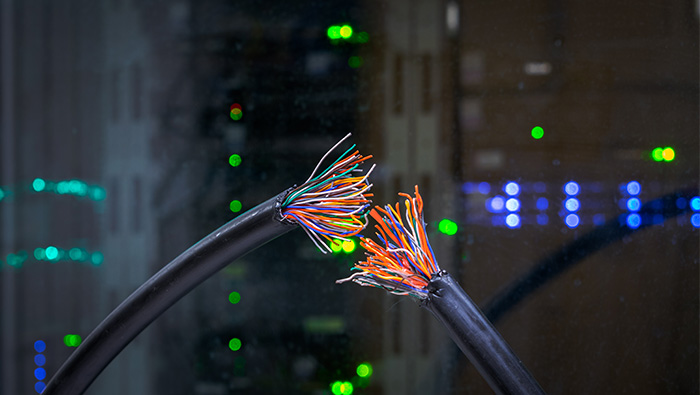What is sustainability? Is it environmental impact? Triple bottom line? Making a profit? There are several answers to this question, but it can probably be summarised as “Will your business/company/operation still be around in ten years?” Sustainability in manufacturing involves conducting operations that minimise environmental and social impacts, while ensuring long-term economic viability. It is about reducing resource consumption, waste generation and emissions, and promoting ethical practices throughout the supply chain. Sustainable manufacturing aims to balance economic prosperity, environmental stewardship and social responsibility. The goalposts will continue to move, and sustainability is therefore a continuous journey, not a destination.
In practical terms, manufacturing sustainability encompasses energy efficiency, waste reduction, responsible sourcing, employee welfare, and community engagement. Responsible manufacturing companies will already have sustainability initiatives in these areas, and they will understand the tangible opportunities in this area that also make good business sense.
Digital transformation
As industries face increasing pressure to be sustainable, digital transformation has emerged as a powerful catalyst for change. By applying information technology to support sustainable initiatives, manufacturers can enhance their overall operations. This article will explore the intersection of digital transformation and sustainable manufacturing, focusing on how digital technology advancements empower the future workforce, address automation concerns, and facilitate improved triple bottom line reporting.
The first step is to develop a pragmatic vision of the landscape in five, ten, and even 20 years. Automation and robotics will become more prevalent, transforming production processes and job roles. Artificial Intelligence (AI) and data analytics will play a central role. Sustainable manufacturing practices will prevail as global pressures dictate the terms of production, with a focus on resource efficiency, circular economy principles, and reduced environmental impact. Supply chains will need to be more resilient, driven by digitalisation and blockchain technology. Leading manufacturers will need to collaborate transparently with suppliers and customers, fostering innovation and the adoption of sustainable solutions.
In this new landscape there will also be challenges. Countries that lag in technological infrastructure, education and skills are unlikely to keep up, and their industry will simply fall behind, resulting in further pressures.
Empowering the new generation workforce
The integration of digital technologies in manufacturing not only optimises physical processes but also impacts the new generation workforce. Digital platforms and communication tools enable seamless collaboration and knowledge sharing across organisational boundaries. Cross-functional teams can leverage these platforms to identify and implement sustainable practices efficiently, fostering a culture of innovation and continuous improvement.
The shift toward digital transformation necessitates reskilling and upskilling programmes. Manufacturers must invest in training initiatives and digital learning platforms to equip their employees with the skills needed to leverage technology. By fostering a learning environment and providing growth opportunities, organisations can nurture a culture where the workforce both embraces and drives sustainability initiatives.
Moreover, data analytics will play a pivotal role in enabling employees to make informed decisions regarding energy consumption, waste reduction and process optimisation. By augmenting real-time data with AI expert systems, manufacturers can identify areas for improvement, monitor progress, and contribute to sustainable manufacturing practices effectively.
Automation and job impacts
The advent of automation has raised concerns about the displacement of human workers. However, in the context of sustainable manufacturing, automation offers significant benefits and redefines job roles.
Automation allows manufacturers to reallocate repetitive and mundane tasks to machines, freeing resources and capacity to focus on higher value activities such as innovation, process improvement, and sustainability-related initiatives. This shift not only enhances job satisfaction, but can also unlock the potential for creativity and problem solving, driving innovation within organisations.
While certain jobs may disappear, and others will have to change, automation also presents reskilling opportunities. Proactive employees can develop new skills that align with emerging technologies, positioning themselves as valuable contributors to future manufacturing. Reskilling programmes can equip individuals with the ability to manage and maintain automated systems, fostering job growth.
Furthermore, increased automation will open doors to new job creation in sustainable technologies. As manufacturers adopt digital transformation and embrace sustainability, new roles will likely emerge in areas such as data analytics, cybersecurity, renewable energy integration, and technology deployment.
Improved triple bottom line reporting
Enhanced triple bottom line reporting plays a pivotal role in driving sustainability efforts within manufacturing. Digital technologies enable accurate data collection, analysis and reporting of sustainability metrics, fostering transparency in manufacturing practices. Real-time access to data enables organisations to identify areas for improvement and proactively mitigate environmental impact. Moreover, enhanced reporting holds manufacturers accountable for their social and environmental impacts, instilling trust and credibility among stakeholders.
Stakeholder engagement is essential in driving sustainable manufacturing practices. Digital platforms and reporting systems facilitate transparent collaboration between manufacturers, customers, suppliers and communities. Through these platforms, stakeholders can exchange ideas, share best practices, and collectively identify sustainable solutions and initiatives. Collaboration enhances the overall effectiveness of sustainability efforts and strengthens relationships.
Digital transformation enables ongoing performance evaluation, benchmarking, and goal tracking. By monitoring and analysing data, manufacturers can measure progress, identify areas of success, and address challenges in real time. These insights facilitate continuous improvement, ensuring sustainability goals outlined in triple bottom line reporting are attainable.
Leadership
Leadership will play a crucial role in shaping the future of manufacturing in terms of technological advancements and sustainability. Effective leaders will drive the adoption of emerging technologies, navigate digital transformation complexities, and ensure organisations remain competitive. They will inspire and empower the workforce, facilitate reskilling, and establish a culture that prioritises environmental and social responsibility. Leaders will foster innovation, encouraging sustainable practices and circular economy principles. By leading by example and engaging stakeholders, leaders can drive collaboration, transparency and accountability throughout the supply chain, ultimately steering the manufacturing industry toward a better and more responsible future.
Conclusion
Digital transformation is catalysing change in the manufacturing industry and making sustainability integral to operations. By empowering the future workforce, redefining job roles through automation, and promoting improved triple bottom line reporting, manufacturers can drive sustainable practices while enhancing their social, environmental and economic performance. Embracing digital technologies presents an opportunity to create a positive impact, ensuring a greener and more sustainable world for generations to come. However, it is crucial for companies to acknowledge the challenges, and invest in the necessary leadership, workforce development and collaboration to successfully navigate this transformative journey.


